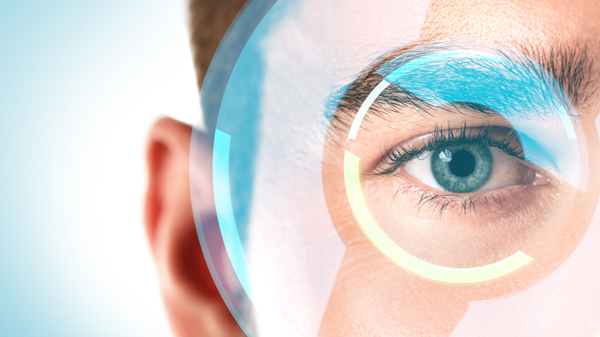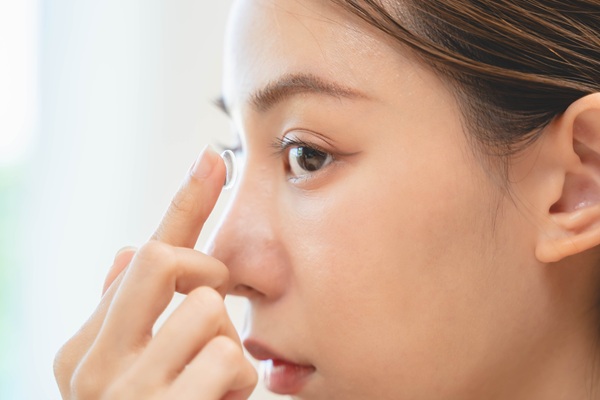What Qualifies as an Eye Care Emergency?

Any condition that requires urgent treatment due to a sudden change in a person’s visual or ocular health requires emergency eye care from an optometrist. Trauma to the eyes, foreign objects, ocular infections, and chemical exposure are all issues that are typically classified as eye care emergencies. Getting prompt treatment for an eye care emergency can help to prevent permanent damage from being done to a person’s eyes.
Some people head right to an emergency room when they sustain an injury to the eye, but most eye emergencies can be treated by an optometrist. Also, an emergency room is not always the fastest way to get treatment, and many hospitals can be busy with other patients.
Any issues that suddenly affect a person’s vision typically count as an eye care emergency. Some of these emergencies involve vision loss and severe eye pain. Symptoms that an eye injury requires emergency care include:
- Eye bleeding
- Eye pain
- A bulging or swollen eye
- Double vision or vision loss
- Floaters or new eye flashes
- Blood in the white of the eye
- Unequal sized pupils
- Trauma to the eye
- Severe sensitivity to light
- Itchy or burning eyes
- Eye discharge
- An eye infection
- A foreign object in the eye
People who are not sure if their current issue counts as an eye emergency should visit an optometrist just to make sure their eyes are fine.
Dealing with an eye emergency
A foreign object that is stuck in an eyeball, possibly due to trauma to the eyes, is a common eye emergency. Anyone dealing with such an injury should avoid rubbing their eye or attempting to remove the debris. Saline solution can be used to try and flush the eye out and possibly remove the debris. Inducing tears by pulling on the upper and lower eyelids can also help to remove objects stuck in the eyes.
Those who are dealing with an emergency caused by chemical exposure should not attempt to remove any contact lens in the eye with their fingers. Instead, saline solution or water should be poured over the lens to dislodge it. Contact lenses being left in the eye after being exposed to chemicals can trap chemicals on the cornea, making things worse.
Blows to the eye are another common eye emergency. They can be managed with a cold compress to reduce any inflammation and promote healing. The compress should only be used for 5 to 10 minutes each session to allow the eye to rest. A cold compress can easily be made by wrapping ice with a clean cloth. Avoid placing ice directly against the skin.
Signs emergency care is needed immediately include vision changes, increasing or persistent pain, bleeding inside or outside the eye, and any other visible changes to the appearance of the eyes.
Frequently asked questions about emergency eye care
Not sure if you need emergency eye care? Here are answers to some of the questions you might have:
1. When should I seek emergency eye care?
If you experience any sudden or severe changes in your vision, pain in or around your eyes, swelling of your eyes or eyelids, or if you have sustained an injury to your eyes, you should seek emergency eye care as soon as possible.
2. What should I do if I cannot see at all?
If you experience complete blindness in one or both eyes, call 911 or immediately go to the nearest emergency room.
3. What should I do if I have a foreign object in my eye?
Do not attempt to remove the object yourself. Instead, seek professional help from an optometrist or other medical professional. They will be able to safely and effectively remove the object.
4. What should I do if I think my eye is infected?
If you believe that your eye may be infected, it is crucial to seek medical attention as soon as possible. An infection can quickly lead to severe damage to an eye if not treated promptly.
5. What should I do if I have sustained an injury to my eye?
If you have sustained an injury to your eye, it is essential to seek medical attention as soon as possible. An eye injury can often result in permanent vision loss or other serious complications if it is not treated promptly and adequately.
6. What should I do if I am experiencing pain in my eye?
If you are experiencing pain in your eye, it is crucial to seek medical attention as soon as possible. Eye pain can often signify a serious underlying condition and should not be ignored.
Protect your eyes
Not getting appropriate treatment for eye emergencies can have serious consequences like vision loss. Give us a call or visit our Dallas clinic to set up an appointment with our optometrist.
Request an appointment here: https://www.texasoptical.net or call Texas Optical at (214) 771-7333 for an appointment in our Dallas office.
Check out what others are saying about our dental services on Yelp: Emergency Eye Care in Dallas, TX.
Recent Posts
For those living with diabetes, undergoing a diabetic eye exam is one of the most important steps in protecting their vision and overall eye health. High blood sugar levels can lead to a range of complications, including conditions that damage the eyes over time. These exams help detect these issues before they become serious, allowing…
Contact lenses provide clear vision and convenience for individuals who prefer an alternative to eyeglasses. However, proper care and maintenance are essential to prevent infections, irritation, and eye damage. Neglecting hygiene practices can lead to serious eye conditions, including corneal ulcers and keratitis. Understanding how to clean, store, and handle contact lenses ensures long-term eye…
Maintaining eye health and preventing long-term issues is the result of consistent and quality vision care. Many people focus on overall wellness but may overlook daily habits that support healthy eyesight. However, taking simple steps each day can protect vision, reduce eye strain, and prevent future complications. By making eye health a priority, it is…
Prescription contacts provide vision correction, comfort, and convenience for those who do not want to wear glasses. However, caring for and wearing contacts takes some getting used to. Learning to insert, remove, and maintain them will help ensure a comfortable and safe experience.Not all contact lenses are the same, and choosing the right pair is…


